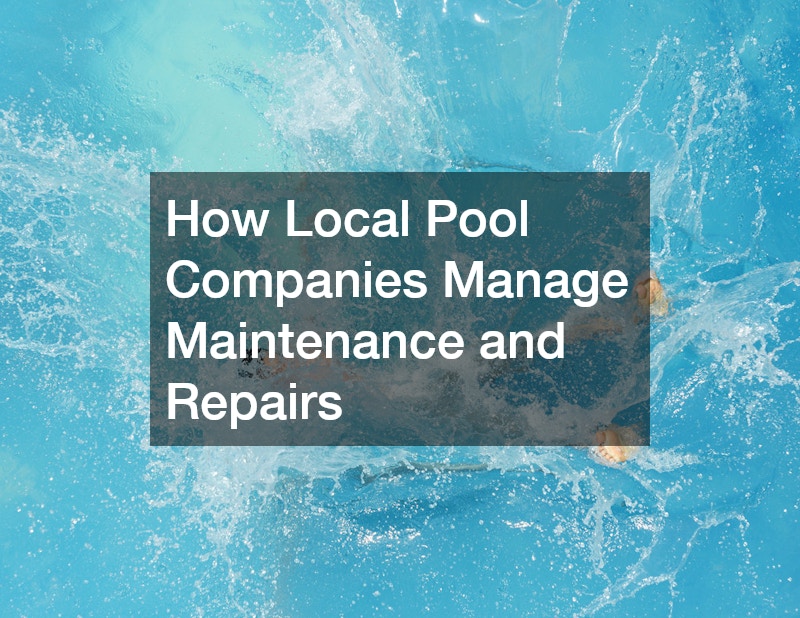
This article explores the essential strategies and practices employed by local pool companies to manage maintenance and repairs effectively. It addresses the common questions and concerns of pool owners regarding maintenance services.
Local pool companies provide a range of maintenance services including regular cleaning, chemical balancing, and equipment checks to ensure pools remain safe and enjoyable.
Regular cleaning involves skimming debris, brushing walls, and vacuuming the pool floor to maintain clarity and hygiene. Routine chemical balancing is crucial for preventing algae growth and ensuring that the water remains safe for swimming.
Video Source
Proper chemical management also protects pool surfaces and equipment from corrosion or damage caused by imbalanced water. Equipment checks help in identifying potential failures before they escalate into significant issues, ensuring longevity and efficiency.
In addition to these core services, pool companies often offer inspection and replacement of filters and pool pumps. UV sanitation and other advanced treatment options may also be highlighted as part of their service offerings. Many companies provide customized solutions based on the specific needs of the pool, ensuring optimal performance and pool health. Some even offer automated monitoring systems that track water chemistry in real time, alerting owners to potential problems before they become serious.
Understanding the frequency of maintenance is crucial; this section outlines the best practices for scheduling maintenance to preserve pool health and functionality.
General guidelines suggest that maintenance should be performed weekly during peak swimming seasons. However, the frequency can vary based on several factors including pool size, usage, and local environmental conditions. For pools that are heavily used or subjected to frequent debris, more frequent visits may be necessary. Additionally, outdoor pools surrounded by trees or located in windy areas may require extra cleaning sessions to remove leaves, pollen, and other debris.
Off-season maintenance is also important to prevent issues during periods of non-use. This may include closing the pool properly or regular checks during winter months. Pool owners should consider adjusting maintenance schedules based on weather patterns, local vegetation, and overall pool conditions. Some companies also offer mid-season “check-ins” to ensure equipment is functioning properly and to catch minor issues before they escalate.
This section details the typical repair issues pool owners may encounter, such as leaks, pump replacements, and skimmer repairs, and explains how local companies address these challenges.
Leaking pools are among the most common issues faced by pool owners; such leaks can significantly affect water levels and lead to costly repairs if not addressed promptly. Local pool companies often employ specialized diagnostic tools to identify the source of leaks, offering solutions that range from re-sealing tiles to repairing plumbing. They also educate owners on regular checks to mitigate leaks and prevent water waste.
Another common concern is the failure of pumps or filters. Regular maintenance checks can help track the performance of these essential pieces of equipment, and companies often provide replacement services as needed. Skimmer repairs are also critical; they ensure that debris does not accumulate and hinder the pool’s filtration system, promoting cleaner water quality. In addition, pool companies may assist with heater repairs, lighting replacements, and automation system troubleshooting, providing a comprehensive repair approach to keep the pool fully operational and enjoyable throughout the season.
Costs can vary widely; here, we discuss how local pool companies assess pricing, factoring in pool size, equipment, and the scope of maintenance needed.
Factors like the size of the pool have a direct impact on pricing; larger pools require more time and resources for maintenance. Additionally, the type of equipment installed can influence overall costs, with more advanced systems often costing more to service. Local companies typically provide free estimates to help customers understand the costs involved before committing to services.
The scope of maintenance varies significantly by seasonal demands and the condition of the pool. Regular maintenance contracts may offer better pricing options, appealing to customers who prefer consistent care. Understanding these cost structures can help pool owners budget effectively and maintain their pools without financial strain.
Managing pool maintenance and repairs effectively requires understanding the services provided, maintenance scheduling, common repair issues, and cost assessments. Local pool companies play a vital role in ensuring pool longevity and enjoyment.
